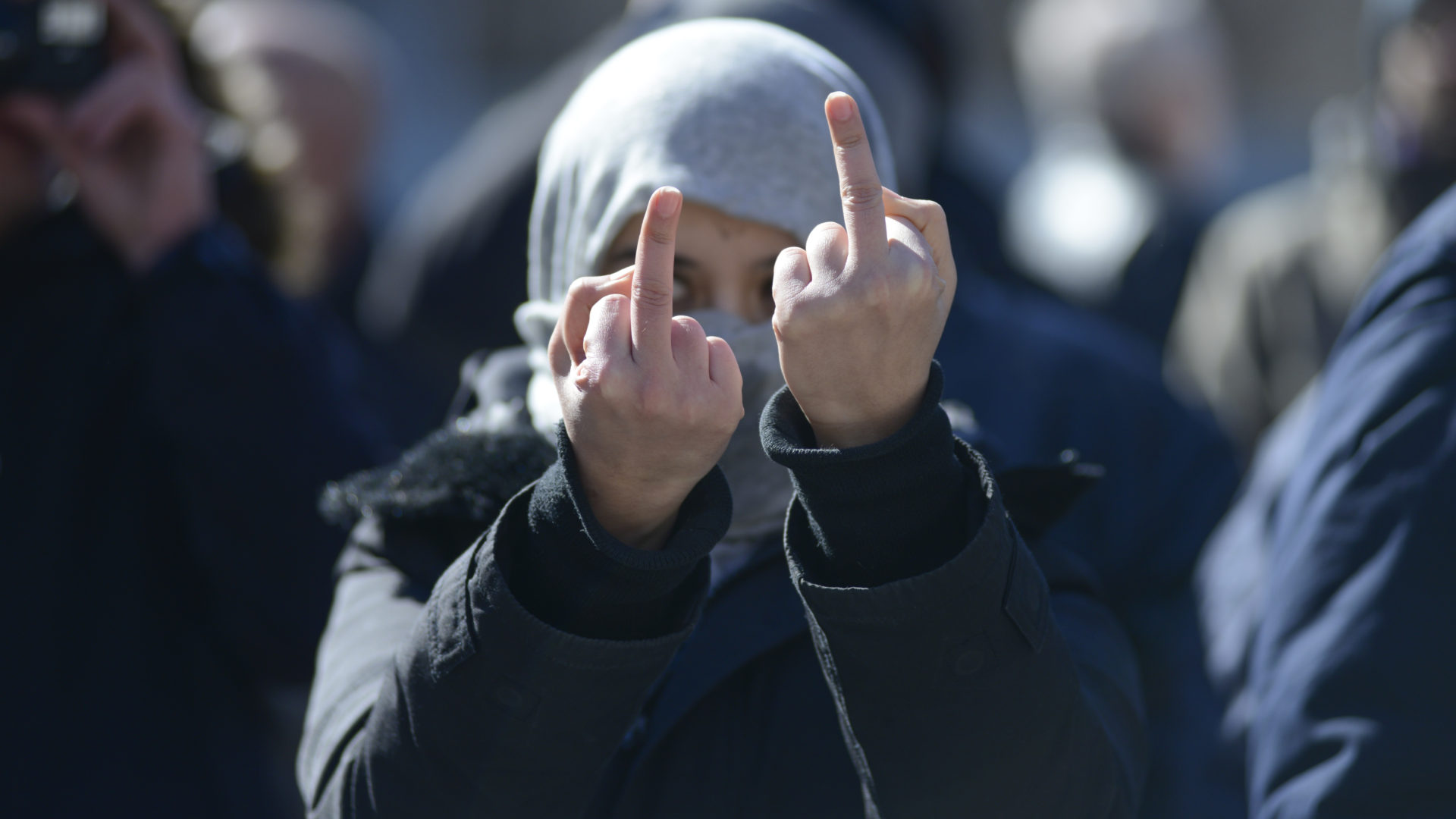by AZEEZAH KANJI

Relying on state institutions as a bulwark against racism and Islamophobia obscures how the law itself reproduces intertwined hierarchies of race and class.
In this time of ascendant Islamophobia permitted to rampage largely unchecked — a time when Muslim bans are upheld by the US Supreme Court and hijab bans are metastasizing, from Austria to Quebec — the success of Toronto restaurateur Mohamad Fakih’s lawsuit against notorious Islamophobe Kevin Johnston has been seized on as a rare shard of hope: a promise that the state institutions that have repeatedly failed to protect us may yet be the source of our salvation.
Last month, an Ontario court ordered Johnston to pay Fakih CAD$2.5 million — the largest cyber libel damages award in Canadian history — for having defamed him and his restaurant patrons as “terrorists,” “radical Muslims,” and “jihadists” who are “up to something nefarious.”
Johnston’s crusade against the manufactured threat of Muslim terrorism has long been a source of terror for the Muslim communities he persistently hounds. He has accused Rohingya refugees fleeing genocide of having “raped and killed their way into the peaceful Buddhist nation”; offered a bounty of CAD$1000 for video recordings of Muslim schoolkids performing their Friday prayers; and kept up a constant smear campaign demonizing Muslims as “terrorist scumbags,” “Nazis,” “non-civilized garbage,” and “rapists” on his many online platforms. Despite this — or, more likely, because of this — Johnston finished second (with 13.5 percent of the vote) in the 2018 mayoral election in the Toronto suburb of Mississauga.
The racism of the state
The jubilation over Johnston’s takedown, however, has troublingly veered into valorization of a legal system that has legitimized many of the same anti-Muslim narratives that Johnston deploys. For example, Canadian courts have upheld legislation that defines “terrorism” by the religious motive of the perpetrator, and 98 percent of terrorism prosecutions in Canada have been of “Islamists,” even though White-supremacist and right-wing ideologues have been responsible for 90 percent of deaths from mass public violence since 9/11.
If tarring a Muslim as a terrorist “is about as serious and damaging an allegation as can be made in these times,” as the judge in Fakih’s case held, this shows the power of state national security discourses that have worked to establish the “Muslim terrorist” as an unparalleled threat — one that can supposedly only be contained by ballooning security budgets and extrajudicial state practices of detention, torture, and drone-killing.
Instead of being celebrated as a simple triumph over Islamophobia, Fakih’s case should alert us to the tensions and contradictions of an anti-Islamophobia that attempts to combat racism by appealing to state institutions that are deeply invested in the perpetuation of racism — indeed, that have been built on the racist erasure of colonized Indigenous sovereignties. The case should compel us to consider the limitations of an anti-Islamophobia that fixates on the wave-crests of vitriolic hatred that break the surface, while leaving untouched the ocean of state-organized oppression that lies beneath.
Roar for more